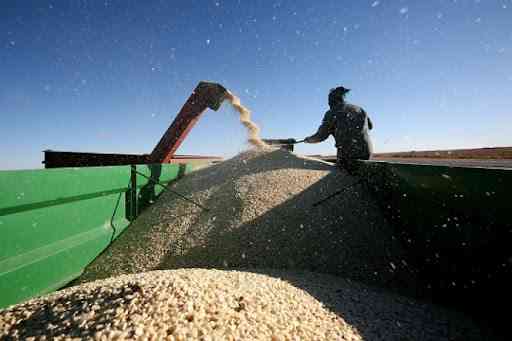
THE Zimbabwe Mercantile Exchange (ZMX) has partnered the Grain Millers Association of Zimbabwe (GMAZ) to unlock financing, reduce post-harvest losses and improve market access for farmers.
The alliance is for five years and seeks to create a reliable market-based grain procurement system that guarantees off-take for farmers while easing financing bottlenecks and boosting food security.
Under the agreement, millers will procure grain via forward contracts executed on the ZMX platform, while farmers deliver commodities to certified warehouses in exchange for digital warehouse receipts.
“This collaboration enables grain intake through forward contracts, helping secure demand while unlocking financing for producers,” ZMX chief executive Collen Tapfumaneyi said at the partnership launch yesterday in Harare.
“Farmers can now deliver grain to certified warehouses and access immediate funding through warehouse receipts instead of waiting for millers to process the grain.”
The certified storage facilities, managed by ZMX, issue digital warehouse receipts that serve as proof of ownership, quality and quantity.
These receipts can be used as collateral for loans or traded for immediate cash, allowing farmers to reinvest early in inputs and stabilise production cycles.
Consequently, warehouse receipts can be used to access working capital in advance, allowing farmers to reinvest in inputs and sustain production cycles.
- Minister bemoans shortage of schools
- BCC joins Green Cities initiative
- Drunkard kills church pastor
- Zimbabwe millers seek to fend off grain crisis
Keep Reading
For millers, GMAZ millers have committed to purchasing grain stored under these receipts through forward contracts — enhancing the credibility of these financial instruments and encouraging broader participation from banks, pension funds, and microfinance institutions.
These forward contracts reduce the pressure for upfront payments by allowing delivery in smaller, manageable tranches aligned with processing needs.
GMAZ chairperson Tafadzwa Musarara hailed the partnership as a historic milestone.
“Today we make history by signing an enabling agreement that will fully operationalise our commodities exchange by committing to procure all the maize brought to ZMX,” he said.
“This aligns with international best practices and marks a departure from the past, where the fiscus carried the full burden of grain procurement.”
He noted that the deal comes at a crucial time, as the country recovers from the worst drought in recent memory experienced in the 2024/25 agricultural period.
Between September 2023 and June 2025, private millers imported 1,34 million tonnes of white and yellow maize to cover the deficit caused by the drought.
“Relying on imports is unpredictable. Promoting local production is not just noble, it’s the most viable option for our business,” Musarara said.
He added that since 2019, GMAZ and its contracting partner, the Food Crop Contractors Association, have supported over 800 000 hectares of maize and wheat under contract farming.
The association now plans to extend this model to rice production to meet growing domestic demand.
ZMX chairperson Derek Odoteye said the partnership was part of a broader strategy to professionalise commodity trading and support national goals such as rural development, price stability, and food security.
“This is more than just a trading deal. It’s about building a resilient and integrated grain supply system that benefits farmers, processors, financiers and government planners,” he said.
ZMX has already rolled out warehouse receipt systems for commodities such as horticulture, cotton and byproducts.
It recently introduced an Input Swap Scheme, allowing farmers to trade a portion of their future harvests for inputs like fertiliser, seed and chemicals.
“This structured market gives government visibility into national supply and demand through actual data from forward contracts. It improves planning around imports and exports,” Odoteye added.
By linking certified storage, digital receipts, and committed buyers, ZMX is addressing longstanding bottlenecks in grain marketing while promoting financial inclusion in agriculture.






